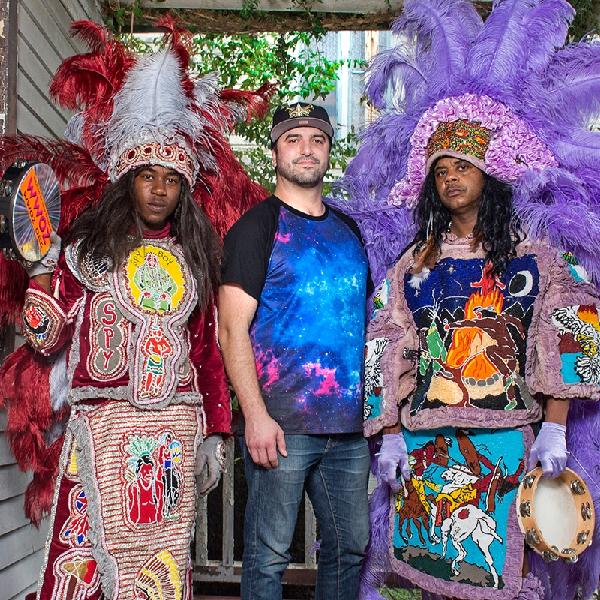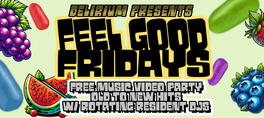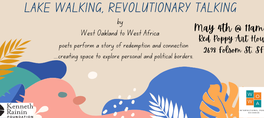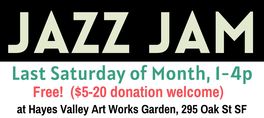After honing their explosive sound in clubs and festivals around the Crescent City, the Mardi Gras Indian funk band Cha Wa is releasing their debut album. The recording, aptly named Funk 'n' Feathers, is their red-hot combination of two of New Orleans’ best traditions, Mardi Gras Indians and street level funk music. Funk 'n' Feathers combines deep funk, percussive polyrhythms, and a mix of singing and Mardi Gras Indian chanting. All of these elements fuse into an intoxicating, hypnotic blend of culture that could only come out of the Crescent City. “The music is based on the Mardi Gras Indians, the brass bands, and the street culture of New Orleans,” says bandleader/drummer Joe Gelini. “Cha Wa” is a slang phrase used by every Mardi Gras Indian tribe. It means “We’re comin’ for ya” - and this band is definitely comin’ for ya!
Funk 'n' Feathers is a direct descendant of the seminal Mardi Gras Indian-related funk recordings of the 1970s by the Wild Magnolias (backed by The Meters), the Wild Tchoupitoulas, The Neville Brothers, and Dr. John. But this time there is a contemporary twist - the production of Ben Ellman (who has also produced his own band, Galactic, as well as Trombone Shorty and others) and the mixing and mastering of San Francisco’s super-hip Count (DJ Shadow, Radiohead, etc.). As a result, Cha Wa's version of Dr. John's “All On A Mardi Gras Day” is a wild recreation of the original. The song takes you straight to the street corners of Uptown New Orleans, instilling the energy of seeing the Indians dancing in their traditional feathered suits, but it also embraces a production style which is cutting-edge. Another classic, “Jock-A-Mo” (the original version of the song which later became a hit, and has been covered by many artists, as ‘Iko Iko’) is also made over by infusing it with the band’s upbeat brand of funk and the fresh production approach. The deep New Orleans roots of the song are also made clear on this version by the appearances of Davell Crawford, the grandson of the song’s writer, and Irving Banister Sr., the man who played guitar on the original version in 1953 - and the father of Cha Wa’s lead Indian Irving “Honey” Banister.
The two leaders of Cha Wa, singer/percussionist Honey Banister and drummer Joe Gelini, have been involved with the Mardi Gras Indians for years. Honey Banister, Big Chief of the Creole Wild West tribe, combines both the Mardi Gras Indian tradition and the history of New Orleans rhythm and blues. His father, Irving Banister Sr., is an unsung hero of New Orleans music, having played with everyone from Danny White to Eddie Bo to Allen Toussaint. It is his guitar on “Sugar Boy” Crawford's original version of the song “Jock-A-Mo.” Honey’s mother, Big Queen Ledell Banister, is also a member of the Creole Wild West tribe - recognized as the oldest of all the tribes, dating back to the late 1800’s. She got Honey involved when he was 6, and he has been with them ever since, recently rising to the highest rank of the tribe.
Gelini moved to New Orleans after graduating from the prestigious Berklee College of Music in Boston. “That's where I first heard of the Mardi Gras Indians,” he recalls, “I went to see Idris Muhammed (the New Orleans-born seminal jazz/funk drummer) play, and I asked if I could have a lesson. When we got together, he told me, 'Man, you got to understand what I'm playing is the Mardi Gras Indian tambourine parts when I'm playing the snare drum.”' After he moved to New Orleans, Joe saw the Mardi Gras Indians emerging on Mardi Gras day to march down Dryades Street and, he says, “I was hooked. It's a spiritual thing. It's more than the music.”
The third major component in the sound of Cha Wa is Spy Boy J'Wan Boudreaux. A year out of high school, Boudreaux is the grandson of Big Chief Monk Boudreaux of the Golden Eagles, one of the most respected Mardi Gras Indians and one of the greatest Indian singers ever. J’Wan combines the lyrics and style of his grandfather with a 21st century take on this music. Like Banister, Boudreaux started this tradition when he was a little kid, and has absorbed it as his own.
Cha Wa started when Gelini and Banister met at a Mardi Gras Indian practice rehearsal one Sunday night on Dryades Street, the epicenter of uptown New Orleans street culture. Indian “practices” are gatherings of Mardi Gras Indians from various tribes in assorted bars and backyards around New Orleans where the Indians rehearse their rhythms and singing. Gelini was in the back learning drums from the percussionists who provide the rhythmic base of the practices, and Banister was leading the session up front, doing most of the singing and keeping all the other Indians in line. They became friends and would perform together onstage sometimes as part of Big Chief Monk Boudreaux's band. “Joe used to call me up to put on the Indian suit and come to the gig just to be up there, not sing,” says Banister, “but one night the usual singer didn't show up, and I said, ‘I got this.’ Joe liked what I was doing, and I became the singer. I've been knowing J'Wan all his life, and we needed another Indian singer, so we thought, 'Let's bring J'Wan up.' He's young, but he's learned quick.” The rest is history.
Other contributors to the album include John Fohl on guitar (Dr. John), Stephen Malinowski on organ (Ana Popovich), Yoshitaka “Z2” Tsuji on piano (Kermit Ruffins), and Haruka Kikuchi on trombone. Another well-known Mardi Gras Indian, Norwood “Geechie” Johnson of the Wild Magnolias, added bass drum and backing vocals. Special guests include producer Ben Ellman on alto saxophone and Colin Lake on lap steel guitar.
The origins of the Mardi Gras Indians are mysterious. Some have traced their existence back to the 1700s, when official records noted the presence of Africans in the Crescent City in Native American attire. Native Americans later helped escaped slaves by hiding them in their settlements in the days of bondage. There was also intermarriage between the two groups. There is no question that the Mardi Gras Indians were well established by the late 1800s.
Today, Mardi Gras Indians sew gorgeous, intricately beaded suits featuring huge, bright-feathered headdresses known as crowns. On Mardi Gras Day they assemble and march through the streets singing, chanting, and playing various percussive instruments. When two tribes meet, they have a “battle” involving declarations of their skill and beauty and the displaying of their suits. In the past these confrontations might turn violent, but in recent years they have been more about who has the prettiest suit, not the sharpest weapon. This tradition was once very much underground and confined to the “back of town” New Orleans neighborhoods. With the release of Mardi Gras Indian recordings, and the work of artists photographing them and anthropologists and ethnomusicologists researching them, the deep cultural traditions of the Mardi Gras Indians are now much more accessible.
Cha Wa fuses these traditions, and some of the authentic practioners of them, with the funk music that also originated in New Orleans. Onstage, the band’s music takes off into the stratosphere while still maintaining a connection to the streets from whence it has come. Like New Orleans, there is a little taste of the Caribbean and a little jazz involved, but it’s all rolled into a heady mix dominated by serious funk. The music is spontaneous and spiritual at the same, and no two shows are ever the same. “We're improvising. We're playing, and we can hear each other,” says Gelini. “We just hook up. It's something that we're not even thinking about. I think we've reached that point where we can feel the direction of the music intuitively and we just go with it.” Gelini continues, “It’s like having Indian practice with modern recordings and modern production and using it all together. It's classic and contemporary at the same time.” On Funk 'n' Feathers, Cha Wa has made a modern album featuring great energy and enthusiasm, but one which also draws from the deep well of New Orleans culture. The result? Cha Wa is coming for ya!
show less
Funk 'n' Feathers is a direct descendant of the seminal Mardi Gras Indian-related funk recordings of the 1970s by the Wild Magnolias (backed by The Meters), the Wild Tchoupitoulas, The Neville Brothers, and Dr. John. But this time there is a contemporary twist - the production of Ben Ellman (who has also produced his own band, Galactic, as well as Trombone Shorty and others) and the mixing and mastering of San Francisco’s super-hip Count (DJ Shadow, Radiohead, etc.). As a result, Cha Wa's version of Dr. John's “All On A Mardi Gras Day” is a wild recreation of the original. The song takes you straight to the street corners of Uptown New Orleans, instilling the energy of seeing the Indians dancing in their traditional feathered suits, but it also embraces a production style which is cutting-edge. Another classic, “Jock-A-Mo” (the original version of the song which later became a hit, and has been covered by many artists, as ‘Iko Iko’) is also made over by infusing it with the band’s upbeat brand of funk and the fresh production approach. The deep New Orleans roots of the song are also made clear on this version by the appearances of Davell Crawford, the grandson of the song’s writer, and Irving Banister Sr., the man who played guitar on the original version in 1953 - and the father of Cha Wa’s lead Indian Irving “Honey” Banister.
The two leaders of Cha Wa, singer/percussionist Honey Banister and drummer Joe Gelini, have been involved with the Mardi Gras Indians for years. Honey Banister, Big Chief of the Creole Wild West tribe, combines both the Mardi Gras Indian tradition and the history of New Orleans rhythm and blues. His father, Irving Banister Sr., is an unsung hero of New Orleans music, having played with everyone from Danny White to Eddie Bo to Allen Toussaint. It is his guitar on “Sugar Boy” Crawford's original version of the song “Jock-A-Mo.” Honey’s mother, Big Queen Ledell Banister, is also a member of the Creole Wild West tribe - recognized as the oldest of all the tribes, dating back to the late 1800’s. She got Honey involved when he was 6, and he has been with them ever since, recently rising to the highest rank of the tribe.
Gelini moved to New Orleans after graduating from the prestigious Berklee College of Music in Boston. “That's where I first heard of the Mardi Gras Indians,” he recalls, “I went to see Idris Muhammed (the New Orleans-born seminal jazz/funk drummer) play, and I asked if I could have a lesson. When we got together, he told me, 'Man, you got to understand what I'm playing is the Mardi Gras Indian tambourine parts when I'm playing the snare drum.”' After he moved to New Orleans, Joe saw the Mardi Gras Indians emerging on Mardi Gras day to march down Dryades Street and, he says, “I was hooked. It's a spiritual thing. It's more than the music.”
The third major component in the sound of Cha Wa is Spy Boy J'Wan Boudreaux. A year out of high school, Boudreaux is the grandson of Big Chief Monk Boudreaux of the Golden Eagles, one of the most respected Mardi Gras Indians and one of the greatest Indian singers ever. J’Wan combines the lyrics and style of his grandfather with a 21st century take on this music. Like Banister, Boudreaux started this tradition when he was a little kid, and has absorbed it as his own.
Cha Wa started when Gelini and Banister met at a Mardi Gras Indian practice rehearsal one Sunday night on Dryades Street, the epicenter of uptown New Orleans street culture. Indian “practices” are gatherings of Mardi Gras Indians from various tribes in assorted bars and backyards around New Orleans where the Indians rehearse their rhythms and singing. Gelini was in the back learning drums from the percussionists who provide the rhythmic base of the practices, and Banister was leading the session up front, doing most of the singing and keeping all the other Indians in line. They became friends and would perform together onstage sometimes as part of Big Chief Monk Boudreaux's band. “Joe used to call me up to put on the Indian suit and come to the gig just to be up there, not sing,” says Banister, “but one night the usual singer didn't show up, and I said, ‘I got this.’ Joe liked what I was doing, and I became the singer. I've been knowing J'Wan all his life, and we needed another Indian singer, so we thought, 'Let's bring J'Wan up.' He's young, but he's learned quick.” The rest is history.
Other contributors to the album include John Fohl on guitar (Dr. John), Stephen Malinowski on organ (Ana Popovich), Yoshitaka “Z2” Tsuji on piano (Kermit Ruffins), and Haruka Kikuchi on trombone. Another well-known Mardi Gras Indian, Norwood “Geechie” Johnson of the Wild Magnolias, added bass drum and backing vocals. Special guests include producer Ben Ellman on alto saxophone and Colin Lake on lap steel guitar.
The origins of the Mardi Gras Indians are mysterious. Some have traced their existence back to the 1700s, when official records noted the presence of Africans in the Crescent City in Native American attire. Native Americans later helped escaped slaves by hiding them in their settlements in the days of bondage. There was also intermarriage between the two groups. There is no question that the Mardi Gras Indians were well established by the late 1800s.
Today, Mardi Gras Indians sew gorgeous, intricately beaded suits featuring huge, bright-feathered headdresses known as crowns. On Mardi Gras Day they assemble and march through the streets singing, chanting, and playing various percussive instruments. When two tribes meet, they have a “battle” involving declarations of their skill and beauty and the displaying of their suits. In the past these confrontations might turn violent, but in recent years they have been more about who has the prettiest suit, not the sharpest weapon. This tradition was once very much underground and confined to the “back of town” New Orleans neighborhoods. With the release of Mardi Gras Indian recordings, and the work of artists photographing them and anthropologists and ethnomusicologists researching them, the deep cultural traditions of the Mardi Gras Indians are now much more accessible.
Cha Wa fuses these traditions, and some of the authentic practioners of them, with the funk music that also originated in New Orleans. Onstage, the band’s music takes off into the stratosphere while still maintaining a connection to the streets from whence it has come. Like New Orleans, there is a little taste of the Caribbean and a little jazz involved, but it’s all rolled into a heady mix dominated by serious funk. The music is spontaneous and spiritual at the same, and no two shows are ever the same. “We're improvising. We're playing, and we can hear each other,” says Gelini. “We just hook up. It's something that we're not even thinking about. I think we've reached that point where we can feel the direction of the music intuitively and we just go with it.” Gelini continues, “It’s like having Indian practice with modern recordings and modern production and using it all together. It's classic and contemporary at the same time.” On Funk 'n' Feathers, Cha Wa has made a modern album featuring great energy and enthusiasm, but one which also draws from the deep well of New Orleans culture. The result? Cha Wa is coming for ya!
After honing their explosive sound in clubs and festivals around the Crescent City, the Mardi Gras Indian funk band Cha Wa is releasing their debut album. The recording, aptly named Funk 'n' Feathers, is their red-hot combination of two of New Orleans’ best traditions, Mardi Gras Indians and street level funk music. Funk 'n' Feathers combines deep funk, percussive polyrhythms, and a mix of singing and Mardi Gras Indian chanting. All of these elements fuse into an intoxicating, hypnotic blend of culture that could only come out of the Crescent City. “The music is based on the Mardi Gras Indians, the brass bands, and the street culture of New Orleans,” says bandleader/drummer Joe Gelini. “Cha Wa” is a slang phrase used by every Mardi Gras Indian tribe. It means “We’re comin’ for ya” - and this band is definitely comin’ for ya!
Funk 'n' Feathers is a direct descendant of the seminal Mardi Gras Indian-related funk recordings of the 1970s by the Wild Magnolias (backed by The Meters), the Wild Tchoupitoulas, The Neville Brothers, and Dr. John. But this time there is a contemporary twist - the production of Ben Ellman (who has also produced his own band, Galactic, as well as Trombone Shorty and others) and the mixing and mastering of San Francisco’s super-hip Count (DJ Shadow, Radiohead, etc.). As a result, Cha Wa's version of Dr. John's “All On A Mardi Gras Day” is a wild recreation of the original. The song takes you straight to the street corners of Uptown New Orleans, instilling the energy of seeing the Indians dancing in their traditional feathered suits, but it also embraces a production style which is cutting-edge. Another classic, “Jock-A-Mo” (the original version of the song which later became a hit, and has been covered by many artists, as ‘Iko Iko’) is also made over by infusing it with the band’s upbeat brand of funk and the fresh production approach. The deep New Orleans roots of the song are also made clear on this version by the appearances of Davell Crawford, the grandson of the song’s writer, and Irving Banister Sr., the man who played guitar on the original version in 1953 - and the father of Cha Wa’s lead Indian Irving “Honey” Banister.
The two leaders of Cha Wa, singer/percussionist Honey Banister and drummer Joe Gelini, have been involved with the Mardi Gras Indians for years. Honey Banister, Big Chief of the Creole Wild West tribe, combines both the Mardi Gras Indian tradition and the history of New Orleans rhythm and blues. His father, Irving Banister Sr., is an unsung hero of New Orleans music, having played with everyone from Danny White to Eddie Bo to Allen Toussaint. It is his guitar on “Sugar Boy” Crawford's original version of the song “Jock-A-Mo.” Honey’s mother, Big Queen Ledell Banister, is also a member of the Creole Wild West tribe - recognized as the oldest of all the tribes, dating back to the late 1800’s. She got Honey involved when he was 6, and he has been with them ever since, recently rising to the highest rank of the tribe.
Gelini moved to New Orleans after graduating from the prestigious Berklee College of Music in Boston. “That's where I first heard of the Mardi Gras Indians,” he recalls, “I went to see Idris Muhammed (the New Orleans-born seminal jazz/funk drummer) play, and I asked if I could have a lesson. When we got together, he told me, 'Man, you got to understand what I'm playing is the Mardi Gras Indian tambourine parts when I'm playing the snare drum.”' After he moved to New Orleans, Joe saw the Mardi Gras Indians emerging on Mardi Gras day to march down Dryades Street and, he says, “I was hooked. It's a spiritual thing. It's more than the music.”
The third major component in the sound of Cha Wa is Spy Boy J'Wan Boudreaux. A year out of high school, Boudreaux is the grandson of Big Chief Monk Boudreaux of the Golden Eagles, one of the most respected Mardi Gras Indians and one of the greatest Indian singers ever. J’Wan combines the lyrics and style of his grandfather with a 21st century take on this music. Like Banister, Boudreaux started this tradition when he was a little kid, and has absorbed it as his own.
Cha Wa started when Gelini and Banister met at a Mardi Gras Indian practice rehearsal one Sunday night on Dryades Street, the epicenter of uptown New Orleans street culture. Indian “practices” are gatherings of Mardi Gras Indians from various tribes in assorted bars and backyards around New Orleans where the Indians rehearse their rhythms and singing. Gelini was in the back learning drums from the percussionists who provide the rhythmic base of the practices, and Banister was leading the session up front, doing most of the singing and keeping all the other Indians in line. They became friends and would perform together onstage sometimes as part of Big Chief Monk Boudreaux's band. “Joe used to call me up to put on the Indian suit and come to the gig just to be up there, not sing,” says Banister, “but one night the usual singer didn't show up, and I said, ‘I got this.’ Joe liked what I was doing, and I became the singer. I've been knowing J'Wan all his life, and we needed another Indian singer, so we thought, 'Let's bring J'Wan up.' He's young, but he's learned quick.” The rest is history.
Other contributors to the album include John Fohl on guitar (Dr. John), Stephen Malinowski on organ (Ana Popovich), Yoshitaka “Z2” Tsuji on piano (Kermit Ruffins), and Haruka Kikuchi on trombone. Another well-known Mardi Gras Indian, Norwood “Geechie” Johnson of the Wild Magnolias, added bass drum and backing vocals. Special guests include producer Ben Ellman on alto saxophone and Colin Lake on lap steel guitar.
The origins of the Mardi Gras Indians are mysterious. Some have traced their existence back to the 1700s, when official records noted the presence of Africans in the Crescent City in Native American attire. Native Americans later helped escaped slaves by hiding them in their settlements in the days of bondage. There was also intermarriage between the two groups. There is no question that the Mardi Gras Indians were well established by the late 1800s.
Today, Mardi Gras Indians sew gorgeous, intricately beaded suits featuring huge, bright-feathered headdresses known as crowns. On Mardi Gras Day they assemble and march through the streets singing, chanting, and playing various percussive instruments. When two tribes meet, they have a “battle” involving declarations of their skill and beauty and the displaying of their suits. In the past these confrontations might turn violent, but in recent years they have been more about who has the prettiest suit, not the sharpest weapon. This tradition was once very much underground and confined to the “back of town” New Orleans neighborhoods. With the release of Mardi Gras Indian recordings, and the work of artists photographing them and anthropologists and ethnomusicologists researching them, the deep cultural traditions of the Mardi Gras Indians are now much more accessible.
Cha Wa fuses these traditions, and some of the authentic practioners of them, with the funk music that also originated in New Orleans. Onstage, the band’s music takes off into the stratosphere while still maintaining a connection to the streets from whence it has come. Like New Orleans, there is a little taste of the Caribbean and a little jazz involved, but it’s all rolled into a heady mix dominated by serious funk. The music is spontaneous and spiritual at the same, and no two shows are ever the same. “We're improvising. We're playing, and we can hear each other,” says Gelini. “We just hook up. It's something that we're not even thinking about. I think we've reached that point where we can feel the direction of the music intuitively and we just go with it.” Gelini continues, “It’s like having Indian practice with modern recordings and modern production and using it all together. It's classic and contemporary at the same time.” On Funk 'n' Feathers, Cha Wa has made a modern album featuring great energy and enthusiasm, but one which also draws from the deep well of New Orleans culture. The result? Cha Wa is coming for ya!
read more
Funk 'n' Feathers is a direct descendant of the seminal Mardi Gras Indian-related funk recordings of the 1970s by the Wild Magnolias (backed by The Meters), the Wild Tchoupitoulas, The Neville Brothers, and Dr. John. But this time there is a contemporary twist - the production of Ben Ellman (who has also produced his own band, Galactic, as well as Trombone Shorty and others) and the mixing and mastering of San Francisco’s super-hip Count (DJ Shadow, Radiohead, etc.). As a result, Cha Wa's version of Dr. John's “All On A Mardi Gras Day” is a wild recreation of the original. The song takes you straight to the street corners of Uptown New Orleans, instilling the energy of seeing the Indians dancing in their traditional feathered suits, but it also embraces a production style which is cutting-edge. Another classic, “Jock-A-Mo” (the original version of the song which later became a hit, and has been covered by many artists, as ‘Iko Iko’) is also made over by infusing it with the band’s upbeat brand of funk and the fresh production approach. The deep New Orleans roots of the song are also made clear on this version by the appearances of Davell Crawford, the grandson of the song’s writer, and Irving Banister Sr., the man who played guitar on the original version in 1953 - and the father of Cha Wa’s lead Indian Irving “Honey” Banister.
The two leaders of Cha Wa, singer/percussionist Honey Banister and drummer Joe Gelini, have been involved with the Mardi Gras Indians for years. Honey Banister, Big Chief of the Creole Wild West tribe, combines both the Mardi Gras Indian tradition and the history of New Orleans rhythm and blues. His father, Irving Banister Sr., is an unsung hero of New Orleans music, having played with everyone from Danny White to Eddie Bo to Allen Toussaint. It is his guitar on “Sugar Boy” Crawford's original version of the song “Jock-A-Mo.” Honey’s mother, Big Queen Ledell Banister, is also a member of the Creole Wild West tribe - recognized as the oldest of all the tribes, dating back to the late 1800’s. She got Honey involved when he was 6, and he has been with them ever since, recently rising to the highest rank of the tribe.
Gelini moved to New Orleans after graduating from the prestigious Berklee College of Music in Boston. “That's where I first heard of the Mardi Gras Indians,” he recalls, “I went to see Idris Muhammed (the New Orleans-born seminal jazz/funk drummer) play, and I asked if I could have a lesson. When we got together, he told me, 'Man, you got to understand what I'm playing is the Mardi Gras Indian tambourine parts when I'm playing the snare drum.”' After he moved to New Orleans, Joe saw the Mardi Gras Indians emerging on Mardi Gras day to march down Dryades Street and, he says, “I was hooked. It's a spiritual thing. It's more than the music.”
The third major component in the sound of Cha Wa is Spy Boy J'Wan Boudreaux. A year out of high school, Boudreaux is the grandson of Big Chief Monk Boudreaux of the Golden Eagles, one of the most respected Mardi Gras Indians and one of the greatest Indian singers ever. J’Wan combines the lyrics and style of his grandfather with a 21st century take on this music. Like Banister, Boudreaux started this tradition when he was a little kid, and has absorbed it as his own.
Cha Wa started when Gelini and Banister met at a Mardi Gras Indian practice rehearsal one Sunday night on Dryades Street, the epicenter of uptown New Orleans street culture. Indian “practices” are gatherings of Mardi Gras Indians from various tribes in assorted bars and backyards around New Orleans where the Indians rehearse their rhythms and singing. Gelini was in the back learning drums from the percussionists who provide the rhythmic base of the practices, and Banister was leading the session up front, doing most of the singing and keeping all the other Indians in line. They became friends and would perform together onstage sometimes as part of Big Chief Monk Boudreaux's band. “Joe used to call me up to put on the Indian suit and come to the gig just to be up there, not sing,” says Banister, “but one night the usual singer didn't show up, and I said, ‘I got this.’ Joe liked what I was doing, and I became the singer. I've been knowing J'Wan all his life, and we needed another Indian singer, so we thought, 'Let's bring J'Wan up.' He's young, but he's learned quick.” The rest is history.
Other contributors to the album include John Fohl on guitar (Dr. John), Stephen Malinowski on organ (Ana Popovich), Yoshitaka “Z2” Tsuji on piano (Kermit Ruffins), and Haruka Kikuchi on trombone. Another well-known Mardi Gras Indian, Norwood “Geechie” Johnson of the Wild Magnolias, added bass drum and backing vocals. Special guests include producer Ben Ellman on alto saxophone and Colin Lake on lap steel guitar.
The origins of the Mardi Gras Indians are mysterious. Some have traced their existence back to the 1700s, when official records noted the presence of Africans in the Crescent City in Native American attire. Native Americans later helped escaped slaves by hiding them in their settlements in the days of bondage. There was also intermarriage between the two groups. There is no question that the Mardi Gras Indians were well established by the late 1800s.
Today, Mardi Gras Indians sew gorgeous, intricately beaded suits featuring huge, bright-feathered headdresses known as crowns. On Mardi Gras Day they assemble and march through the streets singing, chanting, and playing various percussive instruments. When two tribes meet, they have a “battle” involving declarations of their skill and beauty and the displaying of their suits. In the past these confrontations might turn violent, but in recent years they have been more about who has the prettiest suit, not the sharpest weapon. This tradition was once very much underground and confined to the “back of town” New Orleans neighborhoods. With the release of Mardi Gras Indian recordings, and the work of artists photographing them and anthropologists and ethnomusicologists researching them, the deep cultural traditions of the Mardi Gras Indians are now much more accessible.
Cha Wa fuses these traditions, and some of the authentic practioners of them, with the funk music that also originated in New Orleans. Onstage, the band’s music takes off into the stratosphere while still maintaining a connection to the streets from whence it has come. Like New Orleans, there is a little taste of the Caribbean and a little jazz involved, but it’s all rolled into a heady mix dominated by serious funk. The music is spontaneous and spiritual at the same, and no two shows are ever the same. “We're improvising. We're playing, and we can hear each other,” says Gelini. “We just hook up. It's something that we're not even thinking about. I think we've reached that point where we can feel the direction of the music intuitively and we just go with it.” Gelini continues, “It’s like having Indian practice with modern recordings and modern production and using it all together. It's classic and contemporary at the same time.” On Funk 'n' Feathers, Cha Wa has made a modern album featuring great energy and enthusiasm, but one which also draws from the deep well of New Orleans culture. The result? Cha Wa is coming for ya!
show less
Date/Times:
Brick & Mortar Music Hall
7 Upcoming Events
1710 Mission Street, San Francisco, CA 94103
The Best Events
Every Week in Your Inbox
From Our Sponsors
UPCOMING EVENTS
Great suggestion! We'll be in touch.
Event reviewed successfully.









